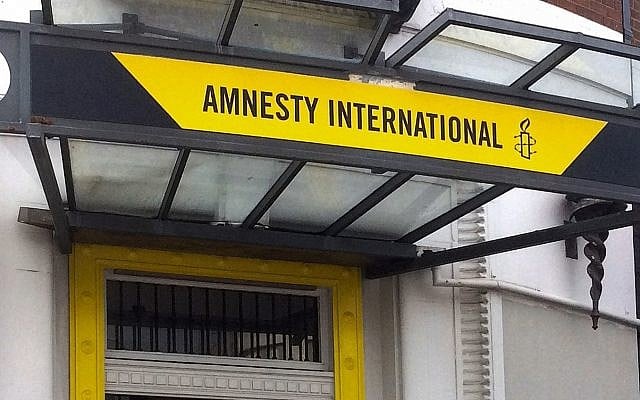Amnesty International has raised alarm over what it describes as the Nigerian government’s failure to ensure justice for the victims and survivors of the brutal suppression of the #EndBadGovernance protests that shook the nation from August 1 to August 10, 2024.

Allegations of Lethal Force and Unlawful Arrests
The international human rights organisation made this known in a statement shared on its official website and social media platforms on Friday. According to Amnesty International, Nigerian police officers used lethal force and carried out mass arbitrary arrests against peaceful protesters across various states, yet no meaningful action has been taken to hold those responsible accountable.
Amnesty International’s findings reveal that at least 24 people were killed between August 1 and 10, 2024, in states such as Kano, Jigawa, Katsina, Borno, Niger, and Kaduna.
Worsening Economic Pressure Sparked the Uprising
The protests erupted due to growing frustration over economic hardship, rising inflation, skyrocketing food prices, and the hike in fuel prices. For ten days, Nigerians took to the streets in major cities to demand better governance, transparency, and relief from unbearable living conditions.
Unfortunately, what began as a peaceful demonstration spiralled into violence in some areas, largely triggered by confrontations between demonstrators and heavily armed security operatives.
Sham Trials and Alleged Torture of Protesters
Amnesty International’s statement pointed to multiple ongoing and concluded sham trials, alleging that several protesters were convicted on bogus charges in courts across Abuja, Kano, Jigawa, Katsina, and Kaduna. In Maiduguri, Borno State, some protesters were reportedly convicted and sentenced to community service, caning, or imprisonment. The charges included accusations such as forming a group called the ‘Zanga Zanga’ Group and planning to take up arms against the state.
The report further alleged that detained protesters suffered torture, starvation, and inhumane treatment. Particularly disturbing was the claim that minors collapsed in court on November 1, 2024, while facing trial at the Federal High Court in Abuja.
Quote from Amnesty International Nigeria
Isa Sanusi, Director of Amnesty International Nigeria, was quoted as saying:
“The Nigerian authorities are yet to take appropriate and effective measures to respect, protect, promote and fulfil the rights to freedom of expression and peaceful assembly.”Shoot-to-Kill Approach and Indiscriminate Use of Force
The statement continued with harrowing findings:
“Amnesty International found that the police fired live ammunition at close range, often at the head or torso, suggesting that officers were shooting to kill. Two survivors suffered injuries after being shot by police in the arm and legs, while others were suffocated by the indiscriminate use of tear gas.”It was also alleged that police brutality continued even after arrests, with detainees facing beatings, deprivation, and abuse while in custody.
Heavy Charges Against Peaceful Protesters
According to Amnesty, several protesters in Abuja still face charges including levying war against the state, inciting to mutiny, and destabilising Nigeria. The group described these charges as baseless and politically motivated.
Condemnation of Government Response
Amnesty strongly criticised what it described as the government’s violent crackdown, calling it a “clear demonstration of the government’s utter disregard for human rights.”
It further declared:
“The Nigerian authorities pressed on with all charges brought against #EndBadGovernance protesters despite overwhelming evidence that they did not break any law.”Call for Accountability and Global Attention
The organisation stressed the urgent need for justice:
“The Nigerian government has failed to hold the police accountable for the horrific attacks on #EndBadGovernance protesters. Failing to hold the police accountable will only encourage the security forces to continue using firearms as a tactical tool for managing demonstrations.”It urged both the Nigerian government and the international community to act:
“One year after the protests, the victims and survivors are still waiting for justice. The Nigerian government must take immediate action to address the human rights abuses and ensure that those responsible are held accountable.”
“The international community must also take a stand and call on the Nigerian government to respect and protect human rights. The use of lethal force and arbitrary arrests is unacceptable and must be condemned.”Protests May Be Over, But The Struggle Continues
The group concluded with a powerful reminder:
“The #EndBadGovernance protests may be over, but the fight for justice and accountability continues. The Nigerian government must be held accountable for its actions, and those responsible for human rights abuses must be brought to justice.”This statement comes at a time when Nigeria continues to grapple with security concerns, deepening economic hardship, and shrinking civic space. Observers fear that the persistent impunity surrounding police violence may erode public trust and embolden further abuse, particularly in a country where youth activism has increasingly become a major force for change.
By failing to acknowledge these protests as a legitimate outcry for better governance and economic reform, the Nigerian authorities risk widening the gap between government institutions and the citizens they are meant to serve.